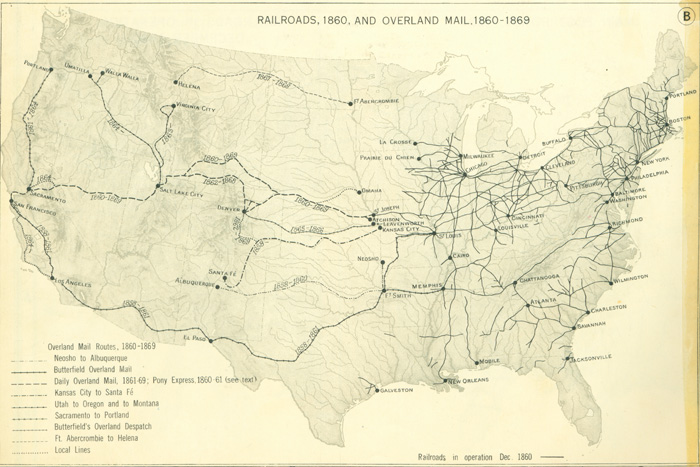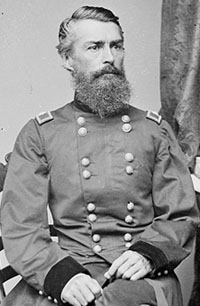I've previously reserved these critical reviews for published AH books on the Trent Affair, like Harry Harrison's Stars and Stripes Forever. However, here I will engage in criticism of an AH "timeline" created by an American PhD student, Ty Smith. This is an abridged version as I had 2,000 words of criticism of the mistakes made in his Battle of Rouses Point alone! I will these stop myself at about a paragraph (maybe two) each for most points.
Burnished Rows of Steel is a timeline based upon a war arising from the Trent Affair. It is an Ameriwank/ Britscrew is evidenced by it's author rather egregiously declaring the British would need more than 13 million troops in Canada to successfully defend it (
post 323). No guessing which way the war in Canada will go in this timeline is there?
The general technique being applied is that the Americans are allowed to make sudden leaps in technology/ logistics etc., whereas for the British the most mundane tasks, like sailing across the Atlantic become Herculean tasks. In some ways this is a rerun of the technique Harry Harrison used in his Stars and Stripes series, and the TL shares much in common with it.
Summary Timeline
Oct '61 - The St. Albans Raid occurs, only three years (to the day) too early.
Nov '61 - Trent Affair, made worse by the attack on Rinaldo
Dec ' 61 - Vermont troops ambush and massacre British troops around the Vermont border
Jan '62 - For no reason the British start acting like the US climbed down
Feb '62 - Ft Donelson falls as per OTL
Apr '62 - The British attempt to occupy Ft Montgomery and fail, the rest of the forces move to Portland and are still besieging it 5 months later
May '62 - Americans conquer most of Canada
upto Sep '62 - not a lot changes
1. Where is the Border?
TS states the British were invading Vermont when they crossed a bridge over the Coaticook River. In fact the border is technically about 50 m south of the bridge, being a simple straight line on a map. However if the train didn't stop at the station one can see the problem. However, as if they knew by telepathy the Vermont Militia ambush the train, kill and wound 156 regulars and militia and capture the rest. What a massive overreaction.
The Vermont Militia are puzzling. OTL the entire militia along with new recruits were mustered into the 1st Vermont Infantry in 1861, which had since been discharged and the vast majority of them reenlisted leaving about 150 militiamen in the whole state. This showed in August '62 when an attempt to call out the militia failed to produce more than half a battalion. It's doubtful the Vermont Militia would have won a firefight about several hundred regulars. To preserve any sense of realism one could assume that the Vermont government refused to hand over the 1st Vermont Cavalry to the Federal government citing the need to guard the border.
2. Norfolk?
TS fails to understand that OTL Norfolk was never assaulted. Huger abandoned it with all his stores, guns etc. when McClellan succeeded in gaining Yorktown. The assault by Burnside is against a massively superior force (outnumbering him more than 2:1) with heavy artillery covering all the possible landing beaches. It is simply impossible.
3. HMG Declares War when?
Using a misinterpretation of the declaration of war against Russia in 1854 TS argues that the British would spend months naval gazing. TS has in fact made the Trent Affair worse by having the USS San Jacinto then attack HMS Rinaldo (naturally the American wins, despite being outgunned 9 guns to 6 and being a slower ship) .
In fact HMG declared war against Russia the first working day after news their ultimatum was rejected. Following the Crimean schedule the news of Britains declaration of war should reach America in mid-January. This is pretty standard throughout the whole TL - slowing down the British, leading us onto:
4. Where is the British Army?
In the OTL troop movements to America were cancelled when news reached the UK of Americas climbdown. TS has then cancelling troop movements even with them planning to declare war at least opportune time for then (i.e. after the Americans get all their armies in place but before the St. Lawrence thaws).
5. Seniority? Regimental Names?
A petty point, but TS keeps putting senior officers under their juniors. He also doesn't understand the rank structure in the British Army, or why the 67th has a second Lt-Col.
TS also doesn't know the the county names of regiments were never used. The 16th did not refer to themselves as the "Bedfords" but rather "The Old Bucks", a name acquired in 1782 stressing their seniority.
6. Magic Trains at Rouses Point
There is no railroad connecting Plattsburgh and Rouses Point OTL. The Hudson and Delaware Railroad runs north from Plattsburgh and the closest it comes to Rouses Point is where it crosses the Ogdensburg and Lake Champlain RR 12 miles west of Rouses Point. Ergo the closest one could get to the action via rail is 12 miles away - the best part of a days march. Hooker's Division should have been walking further.
On this subject, the capacity of a boxcar is 40 men or 8 horses. A large train could carry a regiment of infantry, a battery of guns or a squadron of cavalry. TS has whole brigades getting on single trains, with the entraining and detraining taking no time at all. They are apparently TARDIS like, bigger on the inside and able to teleport, if not time travel.
7. HMS Terror
TS seems to think the Terror needs towing. This would be news to her crew who sailed her to Bermuda without tow in 1860, and have been cruising along the American coast for over a year. It would also be news to the crew of USS Dacotah who nearly opened fire on her off St. Thomas in late '61.
8. USS Mississippi
USS Mississippi, an old side-wheeler with a 6 gun broadside meets the faster and more modern HMS Racoon, with an 11 gun broadside (the heavy smoothbores may have been partially replaced with rifled guns). Naturally, as the American is only outgunned ca. 2 to 1 she rapidly finishes off the Racoon. The battleship Edgar and the ironclad Terror then proceed to smash Mississippi. However Mississippi's sacrifice allows two fast merchant steamers to run into Delaware Bay, and obviously a full battleship and an ironclad designed to work in the littoral don't enter despite there not being anything to stop them.
9. Portland
Banks has three divisions concentrated (Richardson's Sedgwick's and what was historically Butler's) to defend Maine. The British are going to attack by taking all their remaining defensive forces from Canada and Nova Scotia and land by ship, regardless of just how difficult getting the troops there was, the fact that the St. Lawrence is still frozen, and that it will leave the Province of Canada undefended.
The navy of course, despite having ironclads and full battleships refuse to challenge two weak, antique forts with an insignificant armament. The RN of course are famous for refusing to engage the enemy when they have a major advantage, it's far too unsporting. The landing force is of course stopped in their tracks by half a Union division and apparently they settle into a siege. Despite having total seapower domination, a massive manpower advantage because they've been boosted to 3 TS pattern British divisions (i.e. about 5 OTL ones) and assumidly surrounding the place the plucky Americans are still holding out in September where TS has currently got to.
10. Upper Canada
The Union have formed a two Corps army under Grant to invade Canada by gutting other armies. One Corps is McCook's with half of Buell's Army, and another is under Sherman with half of Grant's Army. Lets cut a long story short, Grant has a magic wand and they occupy Upper Canada in July. Lets not worry that OTL Williams started preparing Toronto as a "Sebastapol" on 2nd December '61. Lets not even consider that with 8 months preparation the British might have an effective defence at Toronto.
Part of the problem here might by TS refusing to acknowledge that the Canadian militia may expand during threat of war. He also refused to acknowledge the existence of Williams embodying nearly 50,000 militia in late December '61. Ergo ITTL there are simply no defenders to man those works because they're all busy besieging Portland.
11. Torpedoes?
Of course, the Americans invent the spar torpedo several years early, and proceed to blow up a British battleship with them. Obviously that's how invention works, just because these were invented in another country, used against the Union and it took them two years to backengineer them is no bar to the Union inventing and fielding torpedo boats on a few weeks notice.
12. More ironclads!
In Summer of '62 "more ironclads" are Commissioning in US ports. Lets not worry that OTL with a major push and with access to more resources (like British machine parts and iron) in the summer of '62 the US Commissioned precisely one ironclad, the flawed New Ironsides (can maybe make an appearance in Sept'62, where the story has advanced too). So where are these new ironclads coming from?
13. Vive la Quebec!?
At some point Quebec is conquered and the much hated (by the Quebecois) Patriotes set up as a government. I seem to have missed to conquest, but then all the British defenders are busy besieging Portland. It seems that perhaps only western Quebec is occupied as TS is currently debating how to stage the British defeat battle of Berthierville.
Summary
It's pretty bad. How bad? It's approaching the level of realism of Harry Harrison's Stars of Stripes forever but without getting names wrong. Most of the minor details are wrong of course.
It is better than Tsouas's work? Hard to say, but both suffer similar faults. It is certainly much worse than Conroy's 1862.
Review Rankings
Writing: 5/10 - well written in parts but confusing to track events. Poorly written in other parts. Characters are unbelievable and the British read like an enemy in a Tom Clancy novel - nothing more than targets.
Reserach: 2/10 - whilst some research has been done the author does not understand the data he has compiled. He has not used most of the available resources on this matter such as Kenneth Bourne's "Great Britain and the Balance of Power in North America), Warren's "Fountain of Discontent" Ferris' "The Trent Affair" or any of the other standard works on this topic. He does not understand the British military system in the slightest, for example not even knowing the rank of a brigade commander in the UK system, or how many brigades constitute a division (two).
Realism: 1/10 - at no time did I ever consider the events realistic. Like a HH book the Americans are super-smart, and invent new gadgets with ease. American militiamen can easily defeat superior numbers of better armed British regulars. American ships easily smash RN ships that are faster, better protected and much more heavily armed. The RN refuses to do what they historically planned to do, and the army refuses to attack, unless the Americans are heavily entrenched first. Very sporting.
Enjoyment: some - difficult to rate as this is clearly aimed at an American audience who appear to be insecure in their place in a changing world. To them it seems very enjoyable. To anyone that knows the subject the mistakes grate.
Overall - of some entertainment value, but poorly researched and unrealistic.


